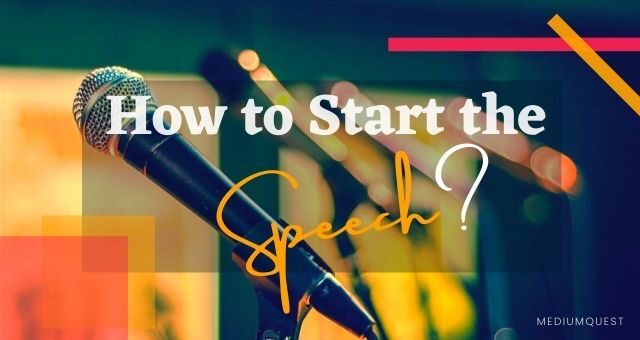What do you think – Is listening a skill or a quality?
Well, according to my understanding, the most important skill one should have is listening. How you listen to others, whether they are talking on any topic or giving knowledge to you, has a major impact on your life and job effectiveness. Listening is a difficult quality as it requires being more attentive, focused, present, open, engaged, and flexible.
Let’s dig deeper and know some of the exciting facts about the same.
First, let’s begin with understanding, Reasons Why Do We Listen:
● We listen to receive knowledge.
● We listen to understand others’ viewpoints.
● We listen for enjoyment.
● We listen to learn something from others.
Is listening a skill? Yes? So let’s talk about its benefits.
Listening is a skill that can give you many benefits. One should need to improve their listening skill to understand better someone. It can even increase the productivity and ability to improve others and negotiate with them.
Apart from this, an effective listener pays attention to others which helps them to solve conflicts and create a better environment at the workplace. Moreover, good listening provides a foundation for a strong relationship because it shows others that you care about them.
Also, listening and empathy go together. You can’t show others empathy and your feelings for them unless you listen to them carefully. Our quality of listening determines our influencing ability to others.
Why effective listening is important for everyone?

As we have understood that effective listening is important for everyone, we have curated a list of some more significant reasons for the same.
● Effective listening shows others that you are paying attention, are interested, and care about what they are saying. People will come to you if they see that you pay attention to them, and will solve their problems.
● We visit various crowded places like malls, markets, hotels, theaters, and many more places. Now, you might be thinking about how these places are connected with listening? Am I right? So the thing is, in such places you hear various sounds and noises that surround you, and from those crowded areas and sounds what we can get is information. Therefore, this can be known as learning with listening.
● Listening helps you to know better about your surrounding. You hear that your dog is barking at someone aggressively, that means that there is danger in your surrounding, or if someone screaming outside your house, that means they need your help.
● Active listening can help you to understand the needs and demands of others. It also helps you, to know how you can satisfy others by actively listening to them.
● When you actively listen to others, you show others that you are curious and interested in people. Along with that, the way you listen and understand others will make you a more intelligent and thoughtful person.
After knowing how important is effective listening, let’s know how to develop this essential skill.
What are the 11 powerful ways to develop listening skills?

Some of the powerful ways to develop listening skills are listed below:
1. Pay attention when others talking- Give the speaker your unbreakable attention and acknowledge what they are saying. Nonverbal communication speaks a lot. So it is advised that you should focus on listeners’ body language.
● Look at the speaker directly at the time of their speaking.
● Focus on listening and keep aside the thoughts that distract you.
● Neglect the environmental factors that distract you such as noises of vehicles, the conversation of others.
2. Make them feel that you are listening- Show your body language and gesture to make them feel that you are paying attention to them.
● At the time of conversation nod occasionally.
● Faces speak a lot. Use your smile and other facial expressions to show that you agree or disagree with them.
3. Provide feedback – Providing feedback during conversation shows that you are actively listening. Our thoughts, judgment, doubts, and beliefs can reflect what we hear. As an active listener, your responsibility is to understand what is said.
● Ask your doubt, to clarify points you didn’t understand.
● At the end of the conversation, summarize the speaker the whole conversation.
4. Try to minimize noise – If there is outside noise interfering with the conversation, just try to avoid or eliminate it. Just move to a quieter place or turn off the electronic appliances that disturb you.
5. Do not interrupt – It’s a bad communication practice to interrupt the speaker in the mid of communication. Do not think that you know everything before the speaker completes his viewpoint.
Give him time to complete their thoughts. If the sender talking about the same thing repeatedly and not coming to the point, keep patient. It’s a conversation, not a debate.

6. Concentrate the content of the speech – Focus on every word the speaker using. It helps to learn new and interesting phrases and words and makes your vocabulary strong.
7. Focus on their body language and properly make eye contact – Non-verbal communication is as important as verbal communication. The body language speaks a lot about the feeling and intention of both listener and speaker.
Keep concentration on the speaker’s body language and maintain necessary eye contact so that the speaker feels that you are attending to his speech.
8. Avoid communication when overstretched and overworked – Try to avoid significant meetings and conversations if you are overstretched and overworked.
Want to know more about Listening Skills? Click Here
It’s difficult to focus on communication when you are stressed and you waste your time. At that time yoga and meditation will help you to reduce your stress level.
9. Equipped yourself with knowledge – Grasp important information on the topic so that you can participate effectively with the speaker.
But, it’s also important to listen to the speaker patiently when the speaker talking about the same topics.
10. Note down important points – Sometimes your mind gets piled up and then you have to bear problems on focusing on conversation.
Hence keep practice to note down all the important point and discuss it with the speaker at the end of the conversation.
11. Try to keep the ongoing conversation interesting – If you did not understand some topic, try to ask them, to elaborate on that part of the conversation.
Also, ask open-ended questions to make conversation lengthy and learn new things and topics.
Conclusion:
Hence, effective listening results in a positive impact on your relationship, career and provides knowledge to you. In today’s society, the way we communicate with others makes our image in front of others.
Try to understand and learn new things whenever possible. Effective listening solves the problem, ensures understanding between speaker and listener.
Also, tell us your views and opinions on listening skills.
Moreover, with verbal communication, nonverbal communication is also important for understanding the feeling and emotions of others. So, it’s significant to make a habit of listening by speaking and understand others’ viewpoints.
So ask yourself again. Is listening a skill? Or, Is listening to a quality?





One thought on “Is Listening a Skill or a Quality? 11 Powerful Ways to Develop it”